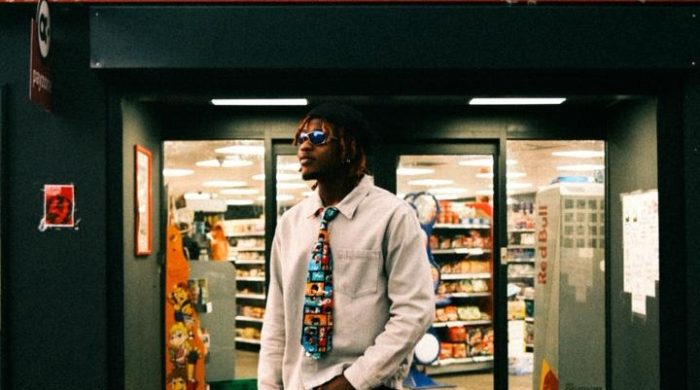In the ever-evolving world of Nigerian social media, stories of generosity, aspiration, and controversy are never far apart. Recently, a lighthearted moment turned viral discussion after a popular content creator reacted to his followers—particularly students—sending him financial gifts on TikTok to help him buy a car, even though many of these supporters reportedly do not have cars of their own. This situation has sparked a widespread conversation online about priorities, support culture, and the sometimes-blurred lines between fans and influencers in today’s digital entertainment scene.
The conversation gained momentum after Geh Geh, a widely recognized content personality, shared an update about his car purchase on social media platforms. His open announcement quickly became a talking point among both his fans and colleagues, drawing out mixed sentiments over the nature of gifting and aspiration in the online creator economy.

Among those who reacted was Peller, another content creator, who pointed out that Geh Geh’s new car came courtesy of generous gifts from TikTok. In an environment where fans are eager to show support—sometimes beyond their means—Peller’s comments have reignited the debate around where to draw lines with online gifting.
“A lot of those who supported Geh Geh, especially the students giving out gifts on TikTok, don’t actually own cars themselves,” Peller noted, highlighting what he sees as a peculiar display of generosity in Nigeria’s online entertainment economy. This sentiment struck a chord with many, raising questions about financial choices among young people, especially students, who are often assumed to have limited resources.
Reflecting on the phenomenon, the TikTok content creator mused:
“Geh Geh don buy car now. Where those students wey dey gift am lion for that TikTok. Where them dey? If una no get car… one guy wey gift am big lion..hope say you get car?”
Viral Debate: Nigerians Discuss the TikTok Gifting Culture
This incident has garnered significant attention, both on TikTok and across other social platforms. Some users recalled similar situations, noting how gifting culture on social media sometimes blurs the line between generosity and self-sacrifice. One comment highlighted the irony:
said: “No be the same people gift him too wey he use buy house ?
The level of hypocrisy in this world is beyond comprehension”
Another weighed in with a dose of humour and local insight, remarking: “E dey try do the same thing wey geh geh do am when people gift peller huge amount of money 😂”
Voices of skepticism joined the mix, with one user observing: “Bro has a working business and didn’t buy the car from tiktok money”
While another asked bluntly: “Wetin concern you? You no dey collect gift too?”
A final contribution added a satirical twist to the conversation: “The fool dey Mimi dem they gift am …….. No be to farm Nigerian be the new update now?”
Watch the trending moment unfold in the video below and see reactions pour in from all corners of social media:
“You people don’t have a car and you are gifting Gehgeh money to buy car” – Peller pic.twitter.com/IuldY8APHc
— 𝔸b𝕒𝕫𝕫 (@abazwhyllzz)
“You people don’t have a car and you are gifting Gehgeh money to buy car” – Peller pic.twitter.com/IuldY8APHc
— 𝔸b𝕒𝕫𝕫 (@abazwhyllzz) September 10, 2025
The rise of gifting virtual items or cash on social platforms like TikTok, Instagram, and Facebook has given birth to a new form of engagement for creators in Nigeria and across West Africa. For many fans, sending a “lion” or any high-value virtual gift is as much about being noticed by the influencer as it is about supporting their craft. However, for students and young people with limited income, these online gestures have raised important questions about financial literacy and setting priorities. Should students prioritize supporting influencers, or focus on personal needs and savings?
This trend is not unique to Nigeria. Across Africa, and even globally, digital platforms have created avenues for fans to express their admiration and encouragement, but not without sparking heated debates about the sustainability of such acts. As content creators increasingly rely on live streams, virtual gifting, and crowd-funding, conversations like these are likely to keep surfacing.
Within the Nigerian context, where hustle culture and the drive for success are deeply valued, the gifting phenomenon also reflects broader societal attitudes toward community, solidarity, and aspiration. Some see these acts as a way to “sow a seed” toward another person’s advancement, while others argue for more caution and financial prudence.
As virtual gifting continues to trend, especially among Nigeria’s vibrant youth population, it may be time for schools, families, and financial literacy advocates to open conversations with young people about the value of money, responsible giving, and prioritizing self-development goals. For content creators, there is also an opportunity to show appreciation without encouraging reckless spending—and to highlight the importance of only giving what one can genuinely afford.
Ultimately, incidents like these prompt important societal reflections: how do Nigerian and West African youths see their role in the creator economy? Is gifting a form of investment in shared success, or simply peer pressure dressed up in viral hashtags?
What’s your take? Have you ever sent a virtual gift to a creator, or do you believe the money should be spent elsewhere? How do you balance supporting your favourite entertainer while staying financially responsible? Share your thoughts, experiences, or advice for students, fans, and influencers in the comments below.
For story inquiries or to pitch your own experience, reach out directly:
Food inquiries → food@nowahalazone.com
General support → support@nowahalazone.com
Story sales/submissions → story@nowahalazone.com
Follow us on Facebook
Follow us on X (Twitter)
Follow us on Instagram










